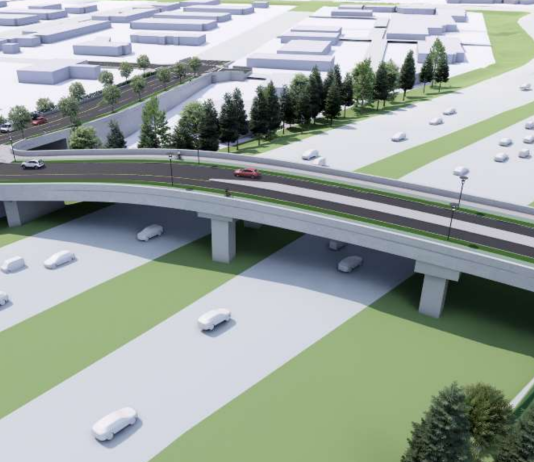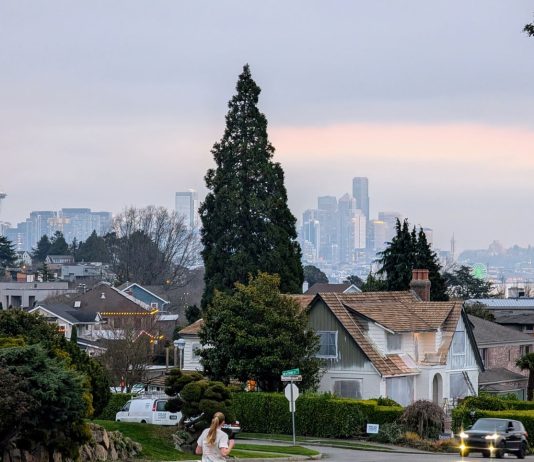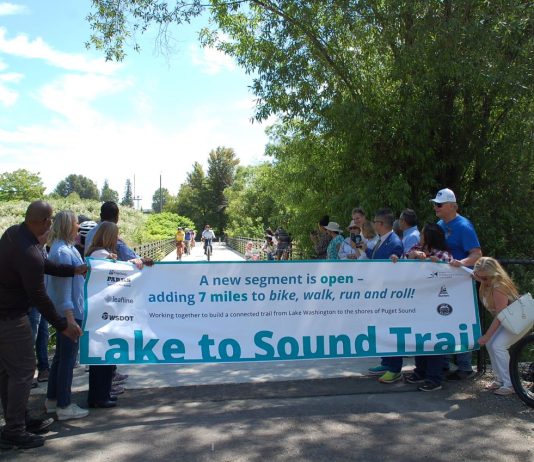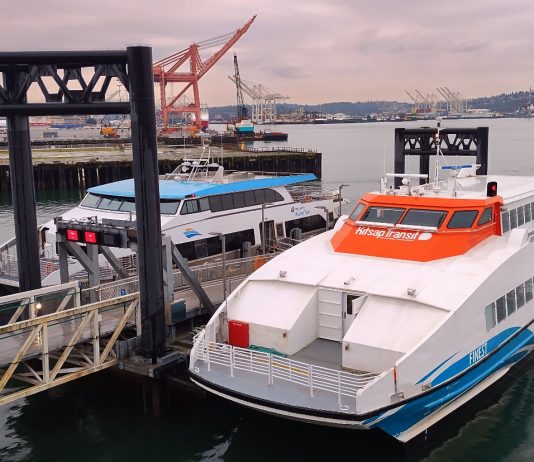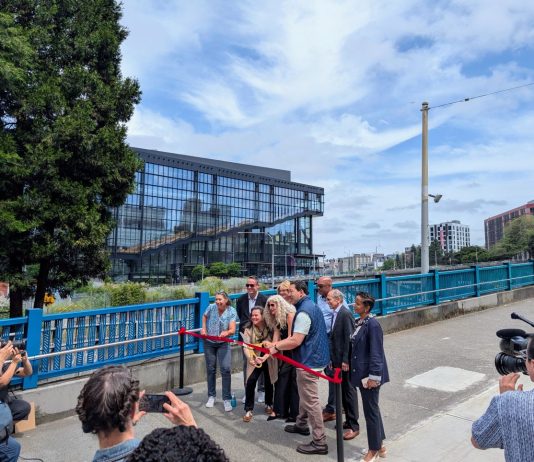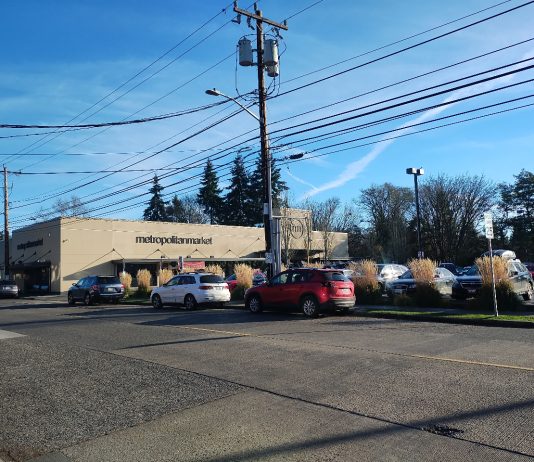The preferred concept for an I-90 bridge in Central Issaquah would cost at least $110 million, and is seen as an essential component of creating a more connected neighborhood around a future light rail station. Councilmembers are wary about jumping in with both feet.
On Monday, June 23, the Seattle City Council is holding a public hearing on the One Seattle growth plan. Housing advocates must defend the 29 neighborhood centers in the plan and push to add more. Jazmine Smith lays out the case for these eight additions.
King County celebrated the opening of a new 2.2-mile segment of the Lake to Sound Trail in SeaTac earlier this month. When complete, the 16-mile non-motorized trail will stretch from the southern tip of Lake Washington in Renton to the shores of Puget Sound in Des Moines.
King County will continue offering 10 daily round trips on weekdays between Vashon and Downtown Seattle through 2027. Meanwhile, service levels on the Bremerton fast ferry are still being negotiated.
License Plate Readers Proliferate in Washington, Bringing Concerns over ICE Overreach
Amy Sundberg -
Automatic license plate readers have proliferated across 81 cities in Washington State, and audits have shown federal agents and anti-abortion states are using Washington plate data to hunt abortion seekers, immigrants, and refugees. This is despite state sanctuary laws intended to shield such vulnerable populations.
On June 11, Seattle officials celebrated the completion of a major overhaul of Pike Street and Pine Street, improving connectivity between Downtown and Capitol Hill. The project features planter-protected bike lanes, wider sidewalks, public art, and a one-block pedestrianization near the Market.
The arts have been key to Seattle bouncing back from the pandemic, helping to fill vacant storefronts, but finding affordable spaces to house art and the artists who make it remains a challenge. Artists are hoping a longshot bid to repurpose the abandoned El Rey Apartments could provide an anchor.
After dozens of blocks were dropped from the One Seattle housing growth plan, planner Michael Hubner downplayed the changes as minimal. The Seattle Planning Commission painted the move as pushing the city is headed in the wrong direction.

